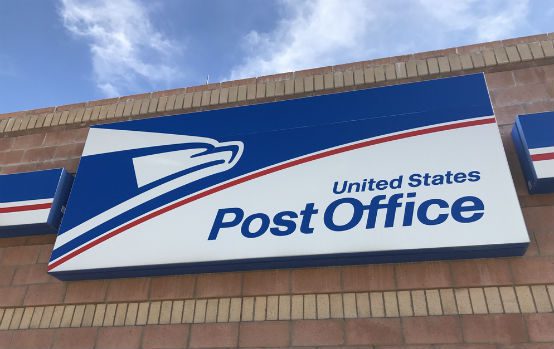Ocasio-Cortez Puts the Postal Service on the Path to Ruin

Over a decade ago, the country watched with disdain as bank executives came to Washington begging for bailouts after benefitting from a plethora of harebrained federal programs and regulations. Now, Congresswoman Alexandria Ocasio-Cortez and Senator Bernie Sanders want to repeat history.
At an event on May 9, Ocasio-Cortez suggested a “not-for-profit public option for basic banking services, and we should be piloting these projects through the USPS,” meaning the United States Postal Service. It’s a proposal similar to something Sanders proposed during the last campaign cycle. Yet the USPS, currently hemorrhaging billions of dollars, is particularly ill-suited to handle banking and lending services for millions of Americans. Postal banking would be a costly flop, failing consumers and putting taxpayers on the line for another massive bailout.
There have been a slew of these sorts of proposals over the years, but most fail to answer a basic question: “what kind of interest rates should risky borrowers be charged?” The payday lending industry makes modest profits charging high interest rates to really risky borrowers who are down on their luck and probably can’t get money elsewhere. Ocasio-Cortez and Sanders believe these loans are predatory and want to see rates capped and payday lenders destroyed. Presumably, then, any “postal banking” proposal would feature borrowing rates far lower than what those with low credit scores currently experience.
But this business model just doesn’t work. Riskier borrowers tend to have higher default rates, which payday lenders make up for by setting higher overall rates. For these borrowers, a high risk necessitates a higher payoff. But lending to a default-heavy population with low interest rates means that financial losses would almost certainly not be covered. That’s why whenever there are strict “usury laws” on the books, high interest rate lenders close up shop, leaving vulnerable borrowers with even fewer options.
Lawmakers see the beleaguered USPS as an ideal guinea pig for government experimentation precisely because, unlike those lenders, it can’t go out of business. Yet unbeknownst to most, the USPS already dabbles in the financial services sector by fulfilling money orders. And they haven’t done very well compared to their (non-government-backed) competitors. A 2016 inspector general (IG) report notes, “Between 2011 and 2013, the number of non-postal money orders actually increased slightly, while postal money order volumes declined by 11 percent.” This trend continued: from fiscal year 2014 through 2018, money order revenue shrank from $164 million to $147 million even as companies such as MoneyGram continued to grow.
This failing foray into financial markets didn’t happen because of strictures imposed by Congress, a popular refrain among progressive members of Congress like Ocasio-Cortez. The IG takes the USPS to task, for instance, for “selling paper money orders through digital channels, such as usps.com and the USPS Mobile app,” a move “which would likely not require regulatory approval.”
Money losses, then, seem inevitable if the USPS veers into the banking sector. But some proponents suggest that these losses are worth it if the agency services people who truly need affordable bank accounts or loans at affordable interest rates.
Fee-free bank accounts are already widely available, offered by financial institutions with the expertise and clout to handle billions of dollars and millions of consumers. Lending, of course, is a different story, but the federal government should think twice before doling out “affordable” loans to risky borrowers. In the lead-up to the last financial crisis, those who had no business getting loans were shadily approved, and the resulting turmoil crashed the economy. Policymakers should be loath to make the same mistake again.
The Postal Service has plenty of financial and management issues already. With a recently reported quarterly loss of more than $2 billion, the USPS has enough core (in)competencies to worry about without getting deeper into the banking business. Yet if Sanders and Ocasio-Cortez get their way, the USPS may end up having something in common with the worst behaving banks circa 2008: it will only survive because of a taxpayer bailout.
Ross Marchand is the director of policy for the Taxpayers Protection Alliance.
Comments